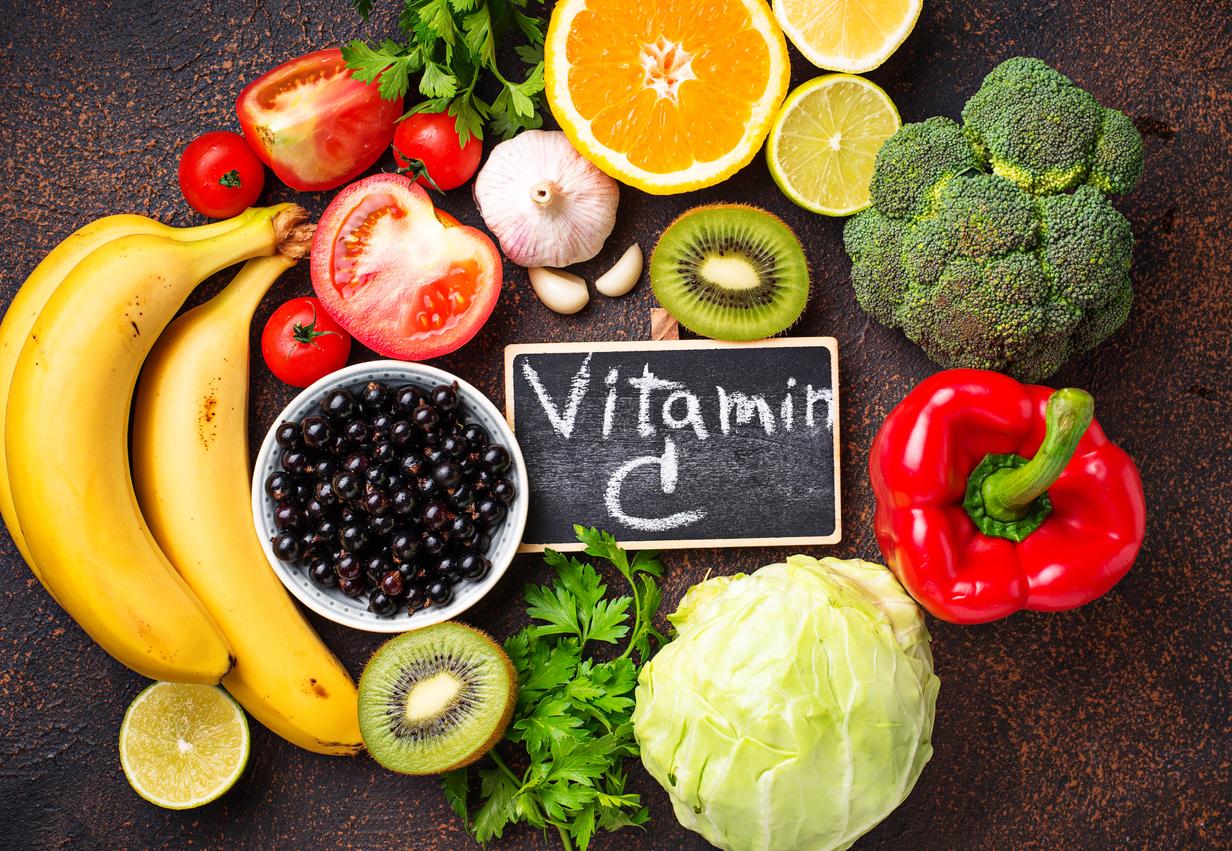Vitamin C is an essential nutrient that participates in many essential functions of the body, for example by fighting against oxidative stress in the body or by preserving the collagen fibers of the skin.

- Vitamin C is a water-soluble vitamin that plays an essential role in health.
- It is recommended for adults to consume 110 mg per day of vitamin C. It is present in many fruits and vegetables such as citrus fruits, cherries or parsley.
- Vitamin C fights against free radicals, oxidative stress and aging. It is also an important part of good eye and skin health.
Vitamin C, also called ascorbic acid, plays an essential role in our health. However, it is not produced by our body. It comes only from our diet, and more particularly fruits (cherries, blackcurrants, citrus fruit, etc.) and vegetables (parsley, thyme, peppers, etc.).
Dietitian Devon Peart of the Cleveland Clinic has detailed the benefits of vitamin C on the US hospital site.
Vitamin C fights oxidative stress
Vitamin C is a powerful antioxidant. It protects the body from free radicals that can damage cells and cause oxidative stress. “A buildup of free radicals is associated with a risk of diseases like cancer, heart disease and arthritis”explains the expert.
To benefit from the protective effects of vitamin C, it is recommended to ensure that you have a daily intake of around 110 mg for adults.
Vitamin C helps protect the eyes
Studies ensure that vitamin C could help prevent several eye diseases such as cataracts or even slow the progression of Macular degeneration (AMD). However, the American specialist notes that the results are “mixed”. However, she acknowledges:we know that vitamin C acts as an antioxidant for the cells of the retina and the macula (region center of the retina, Editor’s note)“.
Vitamin C participates in the absorption of iron
Iron is an essential element for the transport and use of oxygen by the body. And precisely, vitamin C promotes the absorption of non-heme iron. This element is present in vegetable products such as beans, spinach or legumes and nuts.
“Eating vitamin C-rich foods in the same meal with iron-rich plant foods increases the bioavailability of iron, which means you absorb more of it”explains Devon Peart.
For example, when making a salad with baby spinach and orange: the vitamin C in the citrus fruit helps the body access and absorb more iron from the spinach than it could if the vegetables had been eaten alone.
Scarring, wrinkles: vitamin C is good for the skin
As recalled byHANDLESvitamin C helps to “consolidate the collagen fibers, constituent of the connective tissue which supports the cells and thus structures the other tissues”. “Collagen is a protein that gives our skin a youthful appearance”, adds Devon Peart. But, above all, it is one of the keys to good healing.
According to works published in 2013, people who do not consume enough ascorbic acid, heal less quickly than those who have a recommended intake. Between its action on collagen and its anti-free radical effects, vitamin C also proves to be a good element for keeping skin healthy or even slowing down its aging and the appearance of wrinkles.















